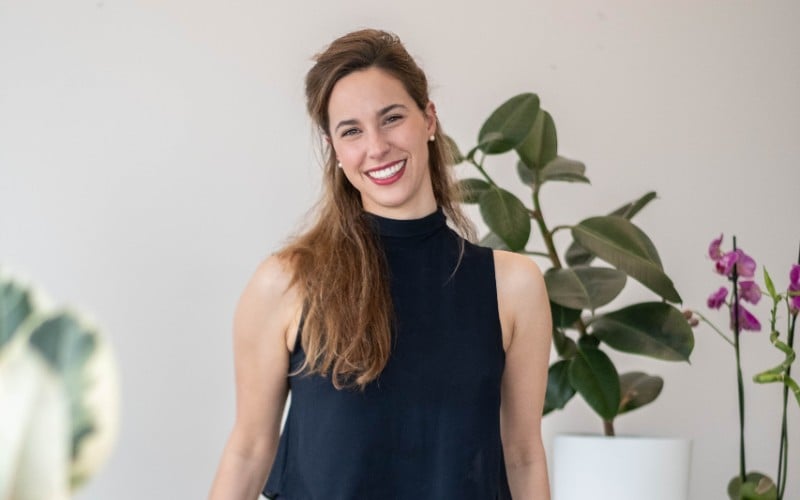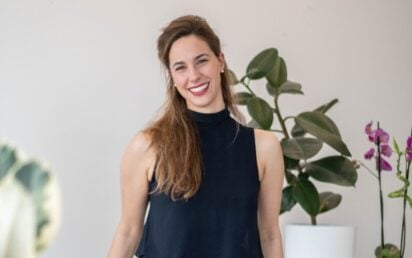Choosing to undergo fertility treatment is a big decision for many reasons.
People who are struggling to conceive a child naturally may see in vitro fertilisation – where an egg is fertilised with sperm in a laboratory then to the womb to grow and develop – as their only medical option. With no guarantee of success, each round of IVF can cost around £5,000.
A less well-known treatment, intrauterine insemination – IUI – places sperm directly in the uterus around the time eggs are released and has a lower rate of success. It can also be costly.
“For a long time I have been acutely aware of the inaccessibility of fertility treatment,” Tess Cosad, CEO of Béa Fertility, tells TechBlast. “NHS provision in the UK is a postcode lottery, and the criteria that must be met to access it are stringent and present a barrier to access for many.
“For those who decide to go private, clinical treatment can be expensive, invasive and emotionally exhausting.”
The startup she founded with David O’Rourke is looking to bring back intracervical insemination, an alternative treatment which was popular until the 1970s when IVF began to be successfully commercialised. ICI was subsequently phased out as a treatment and is no longer offered by fertility clinics.
Béa’s ICI method involves using a device to place a small cup of semen close to the cervix, which is then left in-situ for up to six hours. During that time, women can go about their days as normal. There are no invasive hormone treatments or injectables involved.
Two weeks following the treatment, users then test for pregnancy. Users are also provided with ovulation tests each month, alongside access to an app to help track their ovulation patterns, connect with fertility experts and create individual fertility treatment plans. Treatment kits are delivered each month on a rolling subscription basis.
Béa says its method – which will be launched this summer and costs around £300 per monthly treatment round – gives women a 38% chance of pregnancy when used for six cycles.
“I wanted to bring a clinically-approved, affordable and inclusive fertility treatment to market, to widen access and create more options for couples and individuals struggling to conceive,” says Cosad.
“We went through nearly 90 iterations of the early prototype to get to the device we have today. Every single challenge and product cycle was worth it if it means we can give one family the start they deserve.”
The startup raised $1 million in pre-seed funding last year led by Calm/Storm VC and joined by Q Ventures.
“Founders have to persevere: you will be told ‘no’ many times, but there will be people in the world whose lives will be changed by the tech you envisage,” she adds. “You have to persevere to find those people, to commit to the process and to bring your idea to life.
“It took nearly two years of prototyping and ideating before we were ready to launch Béa and begin fundraising.”
She adds: “I’ve had to stand up in front of many investors, many of whom are men, and talk about sperm, the cervix and ovulation. They had mixed levels of prior knowledge, interest or experience in this area – so I’ve learnt to be prepared to build education into every approach and to take each potential investor on a journey towards a better understanding of the problem at hand.
“I’ve also learnt to get comfortable with other people being uncomfortable. When you’re a female founder pitching for investment with a product or concept considered ‘taboo’, it’s inevitable that some investors will get uncomfortable. But I am there to champion my product and have learnt that when I speak openly, passionately and intelligently about a topic, it helps put people at ease.
“Finally, it’s important to spot the investors that get it, particularly with FemTech. Not all investors will want to write you a cheque – and that’s a good thing. Not all investors are right for your business.
“I choose to work with the investors who engage with the tricky questions from the get-go and demonstrate their understanding of the problem we’re trying to solve.”
We ask for one additional piece of advice to pass on to startup founders.
“Remain connected to your customer at all times. In the process of building products, talking to investors and running your business day to day it can be easy to lose touch with the ‘who’ and ‘why’,” says Cosad.
“I’ve found the best way to stay connected is to talk to my potential customers and listen to what they have to say. Set up a Notion workspace – or even just a pen/paper journal – and keep adding your users’ stories to it.
“The journey of building a startup is hard. You have to remind yourself why you started.”


